There Is No God
There Is No God
Atheists in America
David A. Williamson and George Yancey
ROWMAN & LITTLEFIELD PUBLISHERS, INC.
Lanham Boulder New York Toronto Plymouth, UK
Published by Rowman & Littlefield Publishers, Inc.
A wholly owned subsidiary of The Rowman & Littlefield Publishing Group, Inc.
4501 Forbes Boulevard, Suite 200, Lanham, Maryland 20706
www.rowman.com
10 Thornbury Road, Plymouth PL6 7PP, United Kingdom
Copyright 2013 by Rowman & Littlefield Publishers, Inc.
All rights reserved. No part of this book may be reproduced in any form or by any electronic or mechanical means, including information storage and retrieval systems, without written permission from the publisher, except by a reviewer who may quote passages in a review.
British Library Cataloguing in Publication Information Available
Library of Congress Cataloging-in-Publication Data
Williamson, David, 1955
There is no God : atheists in America / David A. Williamson and George Yancey.
pages cm
Includes bibliographical references and index.
ISBN 978-1-4422-1849-9 (cloth : alk. paper) ISBN 978-1-4422-1851-2 (electronic)
1. AtheismUnited States. I. Yancey, George A., 1962 II. Title.
BL2747.3.W55 2013
211'.80973dc23
2012047052
 The paper used in this publication meets the minimum requirements of American National Standard for Information Sciences Permanence of Paper for Printed Library Materials, ANSI/NISO Z39.48-1992.
The paper used in this publication meets the minimum requirements of American National Standard for Information Sciences Permanence of Paper for Printed Library Materials, ANSI/NISO Z39.48-1992.
Printed in the United States of America
Chapter 1
Understanding Atheism in the United States
Atheism, the affirmative belief that thereisnoGod (and usually no supernatural as well), has been around since religion has asserted that thereisaGodwhich essentially comprises all of recorded human history. Its message and who self-identifies as an atheist, however, seem to have morphed over the ages, depending on the religious beliefs of the day and the relationship between religious and political leaders. Because atheism always seeks, according to Gavin Hyman, to negate religion, then the form and message of atheism changes over time to counter religious influences. In this book, after briefly reviewing the history of atheism and its relationship to existing variations of theism, we will hear from contemporary atheists, in their own words, what brought them to believe there is no God and what maintains and rationalizes that position. We will also listen to their attitudes toward religion in general and toward conservative or evangelical Christianity in particular, paying attention to the justifications they use to support their attitudes. We also will explore how those attitudes translate into political ideology and action. The voices of atheism, though relatively few in number, recently have grown and had a disproportionately large impact on important issues of our day, such as the separation of church and state, abortion, gay marriage, and public school curricula. As those voices increase, it is essential that we understand how and why those who are defined by such a simple phrase as nonbelievers in the existence of God should have such social and political influence.
While most of us have read or read about very recent and assertive atheists such as Christopher Hitchens, Regardless, although atheists of all stripes comprise only a small fraction of the U.S. population, they appear as a group to have grown in size and influence over the last half century and now have a surprisingly loud voice in American culture and public discourse.
Contemporary atheism in the United States gained national attention in the 1960s through the voice of Madalyn Murray OHair, the prototypical fundamentalist atheist. In her address to the Eighth Annual Convention of the American Rationalist Federation in 1962, she described the basic struggle of atheists throughout history as a ceaseless struggle against ignorance and superstition.
We will discuss this in greater detail later, but as we narrow the focus on those atheists who verbally and assertively express their nonbelief in God, we should keep in mind the fact that the more radical and outspoken have been the public voices of atheism as well as religion all along. Popular opinion in the United States, where religion is still quite robust, and where believers overwhelmingly outnumber nonbelievers, tends to favor religion of almost any kind over atheism, although as progressive ideology has grown, atheists find that among progressive religious people they at least share some common ideas. Atheism does run counter to popular opinion, but due to the fact that some from the Religious Right have attempted to influence political processes in ways that concern religious progressives, atheists may be experiencing a greater sense of inclusion than has been the case in previous periods of American history. The public messages from both extremes are usually expressed in combative and derisive language, a topic to which we will return in chapter 4.
Before we begin, it is important that we more clearly define who we are considering atheists for the purposes of this book. As we will discuss in the next chapter, there has been a good bit of confusion over terminology and an evolution in the meaning and use of various references to nonbelievers. That confusion is evidenced by the findings of the Pew Forum on Religion & Public Life, which found that only 5 percent of Americans reported that they did not believe in God or a universal spirit, among whom only 24 percent called themselves atheists. This is substantially lower than the percentages yielded by other studies. Assuming the Pew figures are somewhat accurate, by interviewing only those who self-identify as atheist means that we probably have a sample of individuals who are committed to their nonbelief. For the purposes of this book, we are not interested in those who are not willing to openly self-identify as atheists, or those who report that they are agnosticthat is, that they do not know if there is a God and really dont think there is a way to know.
We also are not interested in those who report that they are not a member of any religious group, sometimes called the nones. They may be religious, or spiritual, but they dont affiliate with any religion. Between 1990 and 2008 those who self-identified as none increased by 42 percent in the United States. According to one study, atheists made up only 5 percent of nones but grew between 2001 and 2008 by 56 percent. It appears that many who are technically atheists do not self-identify for various reasons, including the fear of recrimination or marginalization.
According to figures compiled by Phil Zuckerman, atheists in the United States make up between 3 and 9 percent of the total population, ranking the country 44th in the proportion of the population who are atheists when compared to other countries. The countries that top the list are predominantly in Northern and Western Europe (led by Sweden, with a population between 46 and 85 percent atheist) and in Asia (led by Vietnam, with a population 81 percent atheist).
From Zuckermans figures we find some interesting fodder for debate. First, this is the type of data that scholars have used to refute the secularization hypothesis, which existed in some form as early as the seventeenth century and gained momentum through the late twentieth century. The hypothesis (which some call a theory) is that as societies modernize, they become less religious. Data indicating that one of the most developed countries in the world ranks only 44th in terms of the proportion of its population who are atheists clearly does not support that hypothesis. Second, the growth of atheism in a society that is, by world standards, quite religious indicates that there probably is conflict between these belief systems and evolving positions and arguments used by religion and its antagonists.
Next page
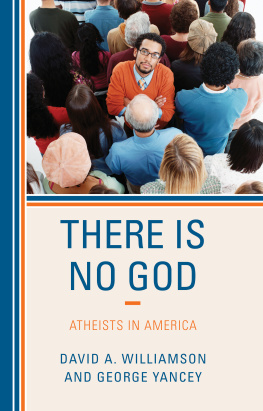

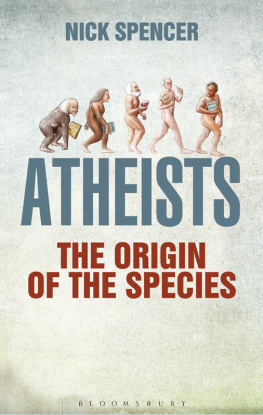
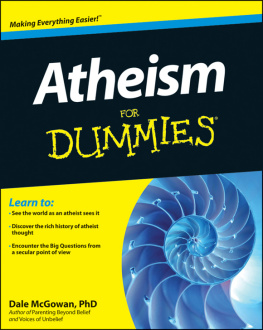
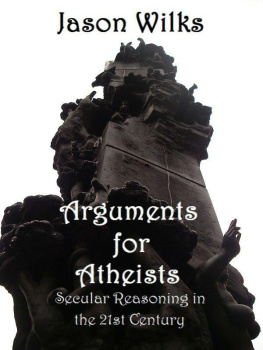
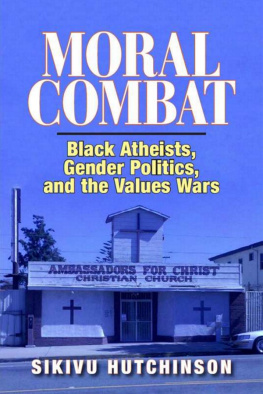
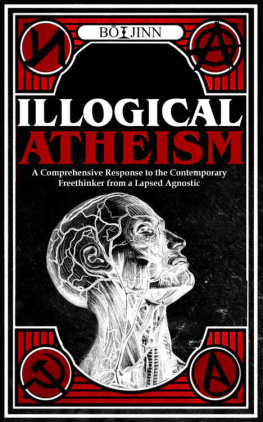
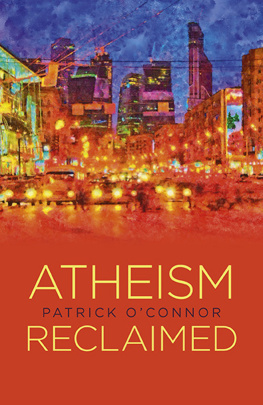
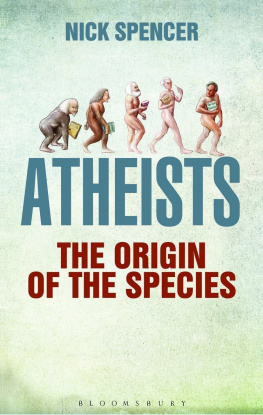
 The paper used in this publication meets the minimum requirements of American National Standard for Information Sciences Permanence of Paper for Printed Library Materials, ANSI/NISO Z39.48-1992.
The paper used in this publication meets the minimum requirements of American National Standard for Information Sciences Permanence of Paper for Printed Library Materials, ANSI/NISO Z39.48-1992.